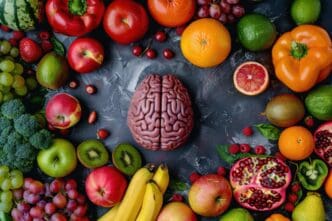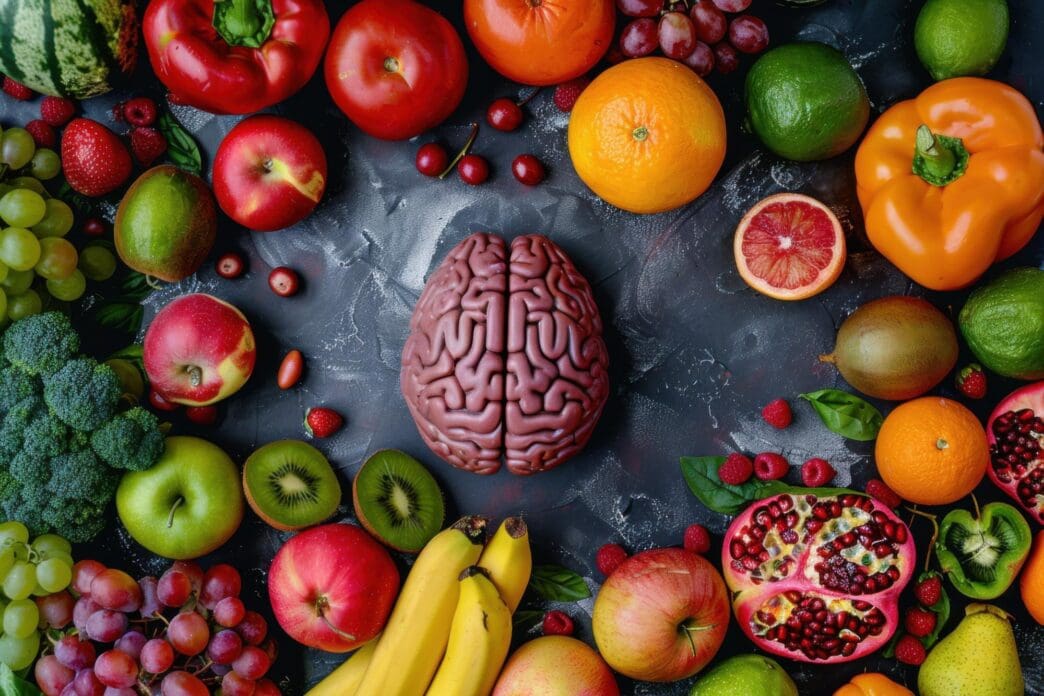A Quick Takeaway
The Story Behind the Trend
How to Make It Work for You
The Community View
As we navigate the complexities of modern life, maintaining sharp cognitive function is a universal aspiration, and for many, a healthy diet emerges as a powerful, accessible tool in this pursuit. Who benefits? Everyone, from young adults looking to optimize focus to older individuals seeking to safeguard their memory and reasoning skills. What we eat, when we eat it, and where our food comes from profoundly impacts our brain health, offering a vital defense against age-related cognitive decline, neurodegenerative diseases, and even short-term mental fog. This proactive approach to nutrition is not merely about avoiding illness; it’s about actively fostering a resilient, high-performing brain throughout our lives.
Understanding Cognitive Decline and Its Roots
Cognitive decline refers to the gradual, often subtle, reduction in mental abilities such as memory, thinking, and reasoning that can occur with age. While some degree of change is normal, significant decline can impact daily functioning and quality of life. This process is complex, influenced by a myriad of factors including genetics, lifestyle choices, chronic stress, and systemic inflammation.
At a cellular level, cognitive decline is often linked to oxidative stress, where an imbalance between free radicals and antioxidants damages brain cells, and chronic inflammation, which can impair neural communication. These processes can lead to the accumulation of harmful proteins, reduced blood flow to the brain, and decreased neuroplasticity—the brain’s ability to form new connections. Understanding these underlying mechanisms highlights why diet plays such a crucial role.
The Profound Connection Between Diet and Brain Health
The brain is an incredibly energy-intensive organ, consuming about 20% of the body’s total energy, despite making up only 2% of its weight. It requires a constant supply of specific nutrients to function optimally, from building and repairing cells to transmitting signals. The food we consume directly provides the building blocks and fuel for these intricate processes.
A diet rich in processed foods, refined sugars, and unhealthy fats can fuel inflammation and oxidative stress, creating a hostile environment for brain cells. Conversely, a diet abundant in whole, unprocessed foods delivers essential vitamins, minerals, antioxidants, and healthy fats that protect brain cells, enhance communication pathways, and support overall neurological function. This deep connection means our dietary choices have immediate and long-term consequences for our cognitive vitality.
Key Dietary Components for Boosting Brainpower
Certain nutrients are particularly vital for brain health, acting as protectors, builders, and enhancers of cognitive function.
Antioxidants: The Brain’s Shield
Antioxidants, found in abundance in fruits and vegetables, combat oxidative stress by neutralizing harmful free radicals. Berries like blueberries and strawberries, dark leafy greens such as spinach and kale, and even dark chocolate are packed with these protective compounds. Regular intake helps preserve brain cell integrity and function.
Omega-3 Fatty Acids: Essential Building Blocks
Omega-3 fatty acids, especially DHA (docosahexaenoic acid), are critical structural components of brain cell membranes. They are vital for brain development and function, playing a significant role in memory and learning. Fatty fish like salmon, mackerel, and sardines are excellent sources, as are flaxseeds, chia seeds, and walnuts.
B Vitamins: Neural Support System
B vitamins, including folate, B6, and B12, are essential for nerve function and the production of neurotransmitters, the chemical messengers of the brain. They also help reduce homocysteine levels, an amino acid linked to an increased risk of cognitive decline when elevated. Whole grains, lean meats, eggs, and legumes are rich in these brain-supporting nutrients.
Flavonoids and Polyphenols: Enhancing Blood Flow and Protection
These plant compounds, found in colorful fruits, vegetables, tea, coffee, and even a moderate amount of red wine, have powerful antioxidant and anti-inflammatory properties. They can improve blood flow to the brain, enhance neuronal signaling, and protect brain cells from damage, contributing to better memory and cognitive processing.
Fiber: Fueling the Gut-Brain Axis
Dietary fiber, present in whole grains, fruits, vegetables, and legumes, supports a healthy gut microbiome. A balanced gut microbiota is increasingly recognized for its influence on brain health through the gut-brain axis, impacting mood, stress response, and cognitive function. Fiber also helps stabilize blood sugar, preventing damaging spikes and crashes that can impair brain performance.
Brain-Boosting Dietary Patterns
Instead of focusing on isolated nutrients, adopting a holistic dietary pattern is the most effective strategy for brain health. Several research-backed diets stand out.
The Mediterranean Diet
This diet emphasizes plant-based foods, whole grains, legumes, nuts, seeds, and healthy fats, primarily olive oil. It includes moderate amounts of fish and poultry, limited red meat, and regular social meals. Its rich antioxidant and anti-inflammatory profile makes it a powerful protector against cognitive decline.
The DASH Diet
Originally designed to combat high blood pressure, the Dietary Approaches to Stop Hypertension (DASH) diet focuses on fruits, vegetables, whole grains, low-fat dairy, and lean protein, while limiting sodium, sugary drinks, and red meat. Its emphasis on nutrient density and blood vessel health directly benefits brain circulation and function.
The MIND Diet
The Mediterranean-DASH Intervention for Neurodegenerative Delay (MIND) diet is a hybrid of the Mediterranean and DASH diets, specifically tailored to promote brain health. It strongly emphasizes berries and leafy green vegetables, while limiting foods like red meat, butter, cheese, pastries, and fried foods. Studies show the MIND diet can significantly reduce the risk of Alzheimer’s disease.
Foods to Limit for Optimal Brain Health
Just as some foods boost brainpower, others can actively detract from it. Processed foods, high in refined sugars, unhealthy trans fats, and excessive saturated fats, are detrimental. These foods promote systemic inflammation, oxidative stress, and unstable blood sugar levels, all of which contribute to cognitive decline. Limiting their intake is as crucial as increasing beneficial foods.
A Holistic Approach to Cognitive Vitality
While diet is foundational, it’s part of a larger lifestyle mosaic crucial for brain health. Regular physical activity enhances blood flow to the brain and stimulates the growth of new brain cells. Adequate, restorative sleep allows the brain to clear toxins and consolidate memories. Stress management techniques, social engagement, and continuous mental stimulation through learning new skills or hobbies also play critical roles in maintaining cognitive function and resilience.
Nourishing Your Mind for a Brighter Future
The evidence is clear: what we choose to eat profoundly impacts our brain’s ability to function, adapt, and resist the challenges of aging. By embracing a diet rich in whole, unprocessed foods—particularly those emphasized in patterns like the Mediterranean, DASH, or MIND diets—we provide our brains with the essential nutrients needed to thrive. This proactive dietary strategy, coupled with other healthy lifestyle choices, is one of the most powerful and accessible ways to safeguard our cognitive health, ensuring a sharper mind and a more vibrant life for years to come.







